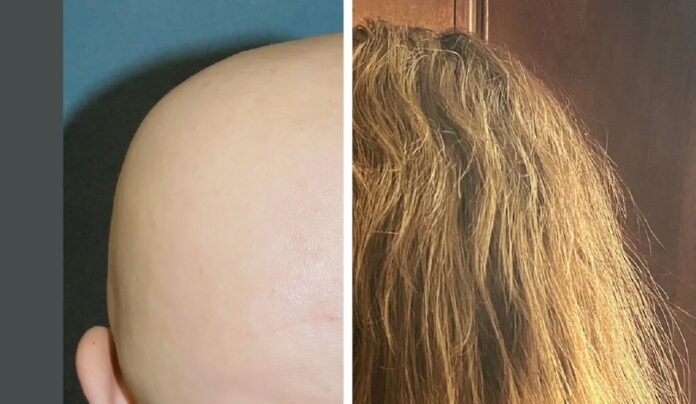Alopecia areata is characterized by non-scarring loss of scalp, face, or body hair. It is an autoimmune disease characterized by sudden, often disfiguring, hair loss.
A new Yale-led clinical trial found a new medication that effectively treats the skin disease alopecia areata in adults. It has also been found to be successful in treating adolescent patients.
Ritlecitinib, a novel oral Janus kinase (JAK) inhibitor being tested in the clinical trial, was created by Pfizer. Following more than a decade of study led by Yale dermatologist Dr. Brett King, other JAK inhibitors, a family of medications initially intended to treat rheumatoid arthritis and several blood disorders, have been licensed for the treatment of a variety of untreatable skin conditions, including alopecia areata.
King, an associate professor of dermatology at Yale School of Medicine and the first author of the new study, said, “This new work is a huge advancement for treating alopecia areata because the clinical trial involved adolescents in addition to adults. Because alopecia areata frequently affects children and adolescents, it is groundbreaking to advance medicine that shows safety and effectiveness in treating younger patients.”
More than 100 adolescents were among the 715 participants in the phase 3 trial, conducted at 118 hospitals and clinics across 18 countries. No of their age, all subjects experienced alopecia areata, which caused at least 50% of their scalp hair to fall out.
The study discovered that many individuals had total or nearly complete regeneration of scalp hair after 24 weeks of taking ritlecitinib. More individuals saw hair regrowth with sustained ritlecitinib therapy for 24 weeks. Throughout the research, participants tolerated the medicine well.
King said, “Significantly, the results were consistent among all age groups, including younger patients.”
“Alopecia areata often causes enormous suffering for adults and kids alike,” King said. “Being a kid is hard enough as it is, so imagine what it’s like to be a kid with big bald spots, maybe missing an eyebrow, maybe without any hair at all. It can be punishing.”
“A young girl with severe alopecia areata recently took her own life because she was bullied at school. We don’t want that to ever happen again. We need to do everything we can to ensure it doesn’t, and one part of that is advancing medicines to reverse disease. This study of ritlecitinib is a big step in that direction.”
Journal Reference:
- Brett King, Xingqi Zhang, Walter Gubelin Harcha et al. Efficacy and safety of ritlecitinib in adults and adolescents with alopecia areata: a randomised, double-blind, multicentre, phase 2b–3 trial. The Lancet. DOI: 10.1016/S0140-6736(23)00222-2
